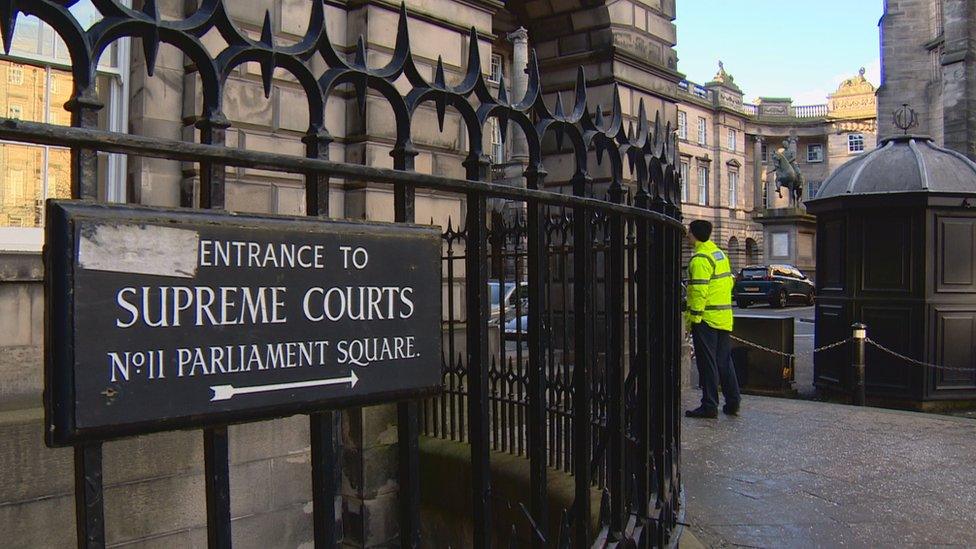Judge to rule on Brexit legal challenge
- Published

The case was heard at the Court of Session on Friday, with a decision due next week
A Scottish judge will decide next week whether the European Court of Justice (ECJ) should be asked if the UK can unilaterally stop the Brexit process.
Campaigners argue that MPs have the legal power to revoke Article 50 completely, without the consent of the other 27 EU members.
They took their case to the Court of Session in Edinburgh, where they asked for the case to be referred to the ECJ.
But they admitted Lord Doherty had been "sceptical" about their argument.
Lord Doherty is expected to announce his decision on Tuesday morning.
The legal action was launched by a group of politicians from the SNP, Labour, Scottish Greens and Liberal Democrats after a crowdfunding campaign reached its 拢50,000 target.
It has been backed by the campaign group, which said it was about "providing clarity to inform the democratic process".
Speaking outside Friday's Court of Session hearing, Jolyon Maugham of the Good Law Project said the judge had clearly been "sceptical" about the argument put forward on behalf of the campaigners by Aidan O'Neill QC.
He told 大象传媒 Scotland: "If you make the assumption that he rejects the petitioners' claim, we will have to decide whether or not we ask the inner house of the Court of Session to reconsider."
The petitioners include SNP MP Joanna Cherry and MEP Alyn Smith, Labour MEP Catherine Stihler, Scottish Green MSPs Andy Wightman and Ross Greer, and Lib Dem MP Christine Jardine.
What is the legal action all about?
Michel Barnier, the EU's chief negotiator, has previously said that any decision by the UK to halt the Brexit process would need the unanimous agreement of all of the EU states.
But the campaigners, who oppose Brexit, argue that Mr Barnier's position has never been tested by the courts.
They believe that the UK Parliament should be able to withdraw Article 50 if MPs vote to do so, and without needing the permission of other EU members.
If it is ultimately successful, the move could strengthen the hand of any attempts to block Brexit after the terms of the final deal between the UK and EU are known.
This is because it would give parliament the power to halt Brexit if it feels the final deal is unacceptable - even if the government wants to leave regardless.
What does the UK government say?
The government's position is effectively that there is no option before parliament to halt Brexit - because MPs will only be asked to vote on whether to accept the final exit deal, or for the country to leave the EU without a deal.
Its lawyers argue that Article 50 will therefore not be revoked, so we do not need to know the answer to the question of whether or not it can be.
David Johnston QC, who was representing the government in Friday's hearing, asked the court not to proceed with the case, saying it has "no real prospect of success" and was "entirely hypothetical".
He added: "The policy of the UK government is that the notification under Article 50 will not be withdrawn and that policy has been repeatedly stated."
But the campaigners argue it is for parliament - not the government - to decide what its options are.
They say that MPs should actually have three choices open to them at the end of the Brexit process - to accept the deal that is reached between the UK and EU, to reject the deal and leave EU regardless, or to reject the deal and remain in the EU.